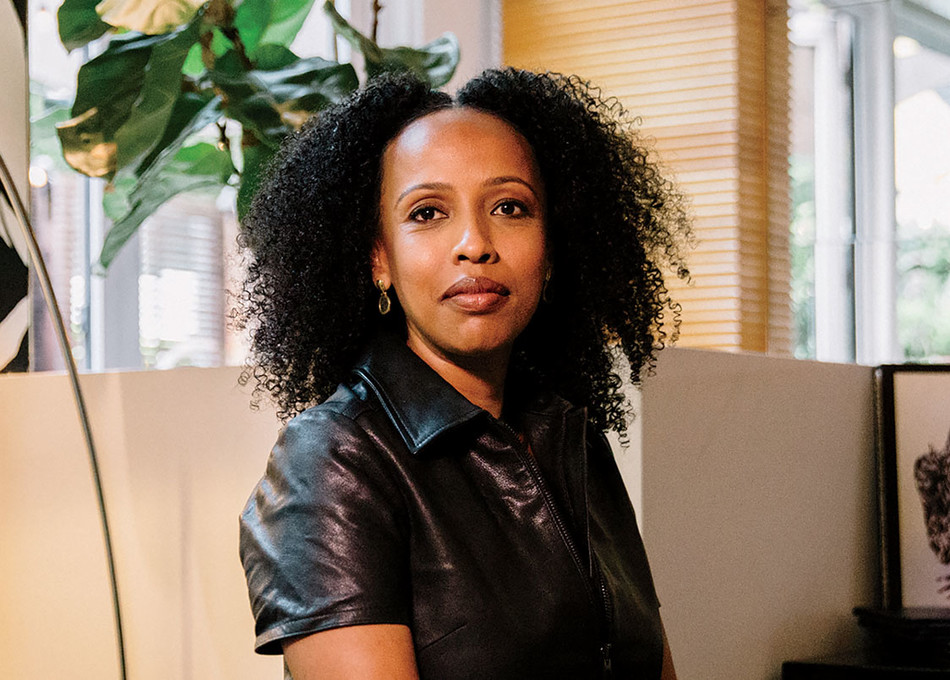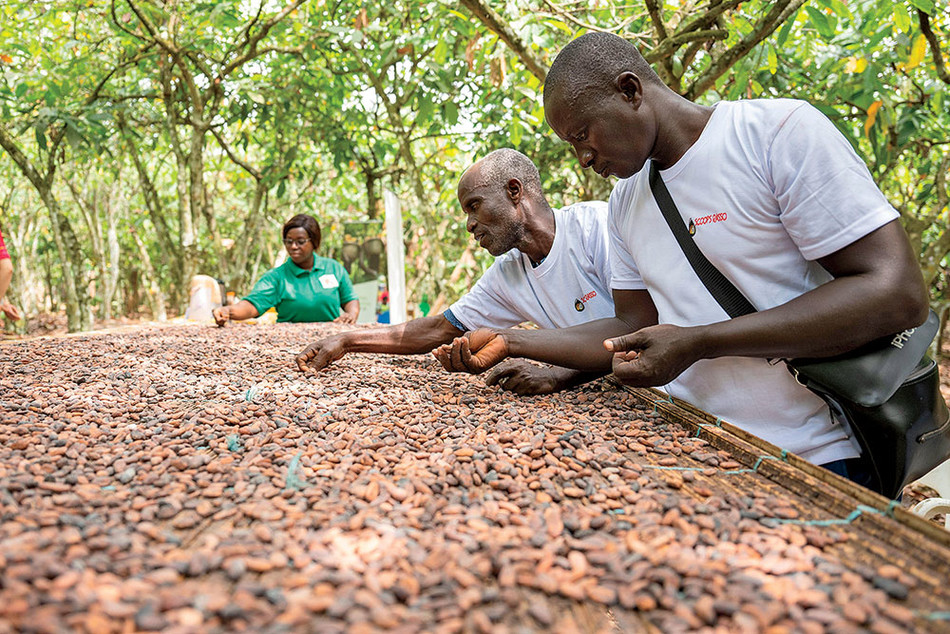Back in 2008, a young Morgan Stanley employee noticed she was reacting to the global financial crisis differently from those around her.
“One of my colleagues was buying guns and gold as a way to protect himself from the world collapsing,” recalls Sara Menker ’12BUS. “And I was like, Listen, if the world’s collapsing, I just want to eat.” She started researching the price of farmland in her home country of Ethiopia. “It was a personal interest that grew into a complete obsession,” she says.
Menker didn’t end up buying a farm, but she did find a productive outlet for her preoccupation with food security. Thirteen years later, she was included on Time’s list of the hundred “most influential people” for her work as founder and CEO of Gro Intelligence. The technology company, launched in 2014, uses AI to analyze and forecast agricultural activity around the world — yielding insights on everything from the effect of El Niño on the Ivory Coast’s cocoa harvest to the global price disparity between palm and soybean oil. Its goal is to tackle the challenge of world hunger in the age of climate change, helping decision-makers build more resilient food and economic systems.
Gro’s mission is deeply personal to Menker, who says that as a child growing up in Addis Ababa, she experienced the far-reaching effects of famine and political unrest. “Fuel was rationed, sugar was rationed,” she says. “It didn’t matter if you were rich or poor.” After moving to the US and graduating from Mount Holyoke College, she pursued work in commodities risk management and natural-gas options trading.
When Menker started investigating Ethiopian agriculture, she discovered a broken system — “Africa is filled with so much arable land, but it’s not yielding as much as it needs to yield” — and her search for explanations was thwarted by a lack of accurate data. She decided to help fill that informational void and went on to launch Gro with COO Sewit Ahderom ’05BUS. The company’s senior vice presidents include classmates of hers from Columbia’s executive MBA program, Jim Heneghan ’09BUS and Michael Simonetti ’09BUS, as well as Philip Tuinenburg ’15BUS.
Gro’s platform — which encompasses the world’s largest agriculture- and climate-related database — draws on more than 170,000 data sets from hundreds of public and private sources. “There’s tons of missing data even after you organize all that,” Menker says, explaining that machine learning can fill in the gaps. Gro has generated some 2.9 million new data series on such topics as the yields of and consumer demand for specific crops, as well as climate risks like fires and floods. Its platform includes user-friendly applications, such as a drought index and an agricultural price-inflation tool, and predictive models. Gro is now working to merge its data with that of other industries beyond agriculture, such as real estate and mining, to establish a more comprehensive picture of climate risk across sectors.
The for-profit company strikes an uncommon balance between selling its services and providing open-source information for social good. In Menker’s philosophy, when you have access to powerful data and analytics, “it’s your obligation to say something if you see something that impacts humanity.” Commercial clients like insurers, hedge funds, and food-and-beverage companies pay for annual subscriptions. For academics and NGOs working on food security and climate change, access is free. Gro also creates tools for the general public, such as the Food Security Tracker for Africa, a deep dive into the status of staple crops in forty-nine countries.
Menker travels frequently between the company’s offices in New York, Singapore, and Nairobi, working not only with corporations and financial institutions but also with governments, which use the platform for managing reserves, evaluating trade policies, and devising other strategies to feed their populations. In May 2022, Menker delivered a speech to the United Nations Security Council, describing the confluence of factors — including fertilizer shortages and logistical bottlenecks exacerbated by the war in Ukraine — that had recently plunged four hundred million people worldwide into food insecurity. “In a world that is increasingly isolationist, we need to come together,” she told the UN leaders. “Food is personal. But our agricultural systems are global.”
While the details of Gro’s success stories are often confidential (“food security is national security”), that doesn’t diminish Menker’s pride in her company’s lifesaving work. “I still get excited every time I leave a meeting, knowing Gro has helped to inform a decision that could make a real difference in the lives of hungry people,” she says. “Those moments give me fuel to keep working.”
This article appears in the Winter 2023-24 print edition of Columbia Magazine with the title "Data Feed."




